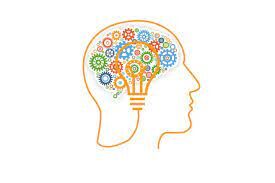Dementia
10 New Brain-Saving Ideas Revealed by 2021 Research
Reduce dementia risk with these simple, science-based ideas.
Posted December 29, 2021 Reviewed by Pam Dailey
Key points
- Previous research has strongly indicated that about 40 percent of dementias can be prevented through lifestyle changes.
- 2021 research offers additional ideas for protecting the brain from cognitive decline.
- Formal education and mental stimulation appear to be potent factors in warding off cognitive problems in the elderly.

Lately I’ve found myself groping for the right word or forgetting a name. Is it age-related memory loss or something more ominous? Whatever the answer, it’s frustrating when memory slips a notch. So, for readers as well as for myself, I decided to review significant findings about warding off dementia* that were published in 2021.
The news is good! First of all, the 2021 research offers additional support for the consensus that as many as 40 percent of dementias can be prevented by following 12 healthy lifestyle behaviors, such as cultivating social relationships, keeping blood pressure low, avoiding air pollution, stopping smoking, and getting regular exercise and/or moving frequently during your day. (For the seven other lifestyle choices and more details, click here. Ten other ways to reduce the risk of dementia, including my favorite, coffee-drinking, are found here.)
To these well-known brain-savers, 2021 brought a host of new ideas. A few of them sound too good to be true—except that they aren't. I must emphasize that most of the studies are observational, rather than randomized controlled trials, and will need to be backed up by future research. Still, these ideas are promising, fun, and relatively easy to implement.
1. Viagra, aka sildenafil. Use of sildenafil is associated with a dramatic reduction in Alzheimer’s disease. In a comparison of sildenafil users versus nonusers, users were 69 percent less likely to receive a diagnosis of Alzheimer’s after a six-year follow-up period.
Why the effectiveness of sildenafil? This medication seems to increase brain cell growth and reduce tangles of harmful tau proteins. (These proteins are one of two hallmarks of Alzheimer's disease, along with amyloid plaques.)
2. Estrogen. The role of estrogen in reducing or raising the risk of dementia has long been controversial. Since approximately two-thirds of those diagnosed with dementia are women, it is critical to study the effects of estrogen on women’s’ brains. Recent studies offer suggestions that estrogen has a healthy effect. For example, a 2021 study from England concluded that hormone replacement therapy (HRT) does not increase the risk of dementia. In addition, a recent observational study from researchers led by Dr. Lisa Mosconi, of Weill Cornell Medicine, concluded that greater exposure to estrogen in life reduces the risk of dementia. In that study of 99 women, ages 46 to 58, women with a greater exposure to estrogen—either via hormone replacement therapy, childbirth, or longer reproductive life—lost less gray matter volume than those with less exposure. While relatively small, this study offers hope for women and calls out for more research on estrogen and brain health.
3. Cinnamon. In lab experiments, cinnamon has been shown to inhibit the formation of tau proteins, one of the hallmarks of Alzheimer’s disease. Why? Cinnamon has powerful antioxidant and anti-inflammatory properties. Cinnamon is delicious, easy to find, and contains no calories. While I await further research, I feel safe sprinkling it on just about anything.
4. Cataract surgery. Cataract surgery lowers dementia risk by 30 percent, according to a 2021 study that analyzed data from 3,000 participants and followed them for over a decade after surgery. The lead researcher, Dr. Cecilia S. Lee, asserted that “no other medical intervention has shown such a strong association with lessening dementia risk in older individuals." Researchers hypothesize that better sensory input to the brain after cataract surgery is the cause of the improvement. Preventing hearing loss offers a brain benefit for similar reasons, as I write here. Both are important not only for sensory processing but for social connections, which also protect against dementia.
5. Mental stimulation. To find out if mentally challenging work could protect the brain from dementia, researchers analyzed data from a variety of studies from both the U.S. and Europe. The result? The researchers “found that people with cognitively stimulating jobs had a 23 percent lower risk of developing dementia compared with those whose jobs were not considered stimulating.”
In another study, researchers examined data from a longitudinal study of aging and dementia. The 1,900-plus participants had an average age of 79.7 years. The seven-year follow-up revealed that those individuals who engaged in the highest level of cognitive activities in their old age—reading, writing, playing card games, and doing puzzles—delayed the onset of Alzheimer’s by five years. How wonderful that activities that most would consider "fun" can also make your brain happy!
6. Delayed retirement. And speaking of the role of mental stimulation, another study comes to a slightly different conclusion than the first one above. Researchers at the University of Michigan analyzed data from 20,000 Americans participating in the Health and Retirement Study. They discovered that those who postponed retirement until age 67 warded off cognitive decline more readily than those who retired between ages 55 and 66. It didn’t seem to matter if their work was mentally stimulating or not, or whether it was paid or unpaid. “Cognitive engagement” seemed to be the key factor, according to the lead author.
7. Setting personal goals, especially after retirement. There is an increased risk of cognitive decline after retirement, according to a substantial body of research. But some individuals fare better than others in maintaining cognitive abilities. Why?
Researchers who tackled this question studied 732 people, 50 percent women, with an average age of 57, over nine years. The results showed that individuals who retired only lost cognitive abilities only if they “disengage(d) from highly challenging activities and goal pursuits.” This conclusion jibes with the ever-increasing body of research on the benefits of "purpose" for older adults.
Sadly, in this study, women seemed especially prone to goal disengagement and therefore to cognitive decline. Since this conclusion runs counter to my own experience and observations, I have to wonder if it’s accurate. Could it be that women are simply more vulnerable to dementia because they are under more stress—due to tight financial circumstances, for example? Still, the general idea of this research—that those individuals who set personal goals and challenges after retirement will fare better mentally—seems valid. In sum: “Use it or lose it.”
8. High protein diet. Consuming a protein-rich diet could be an important factor in preventing dementia. In one study, researchers used a mouse model of Alzheimer’s disease to demonstrate that certain amino acids, called Amino LP7, can protect neuronal connections and reduce inflammation, thereby preserving brain function. No supplement yet exists for Amino LP7. But past research also shows the importance of eating a high protein diet to reduce the risk of Alzheimer’s.
9. Varied activities. In a study from Simon Frasier University, of 3,210 participants, “the (research) team found that engaging in a combination of hobbies, such as light exercise and connecting with loved ones, can reduce memory decline in adults between the ages of 65 and 89 more than any individual activity.”
10. Good oral health. I was shocked to discover that "about one in six adults age 65 or older have lost all of their teeth." Tooth loss is a risk factor for dementia, and the more teeth lost, the higher the risk. According to researchers, tooth loss may reflect a lifetime of socioeconomic disadvantage or create nutritional challenges itself. The good news: Getting dentures can protect against cognitive decline. This provides another reason to add dental benefits to Medicare.
Summary: More reasons for optimism.
Many articles have focused on the depressing fact that there will be more cases of dementia worldwide as the population ages. While this is true, the percentage of older adults with dementia is actually declining. A recent study from Toronto’s Institute for Life Course & Aging looked at numbers from the U.S. Census Bureau. After analyzing the data from 5.4 million people, the research team concluded that from 2008 to 2017, the percentage of adults aged 65 and older with serious cognitive problems dropped from 12.2 percent to 10 percent—that amounts to 1.1 million people not suffering from cognitive impairment! The decline was especially sharp among older women.
Why such a marked decline? Better nutrition, fewer smokers, and less air pollution due to phasing out leaded gasoline all played a role. But the researchers speculated that the main reason was increased educational opportunities and attainment. Every year of formal education results in a lower risk of developing dementia, according to the data. A good education not only provides job opportunities, higher income, and economic contributions, but may also give individuals the “cognitive reserve” that enables them to enjoy excellent brain health throughout life.
(c) Meg Selig, 2021. All rights reserved.
*Dementia is a general term that refers to a deterioration in mental functioning, including difficulty reasoning, learning new things, and performing daily activities, as well as memory loss. Alzheimer’s disease is the most common form of dementia.




